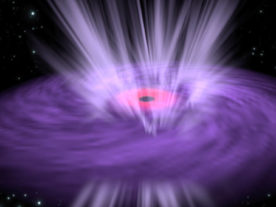
NASA Prevents Space Wreck; Black Hole Winds; Oldest Fossils Found
NASA Prevents a Wreck at Mars The folks at NASA’s MAVEN program recently had to give their spacecraft a small unscheduled course correction so that it wouldn’t smash into Mars’s moon Phobos. The spacecraft that’s been circling the Red Planet for a little over two years conducted a motor burn that give it a slight […]
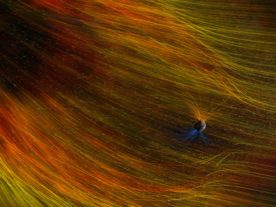
No Worries – Scientists Say Earth’s Poles Won’t Flip for 4,000 Years
The Earth’s magnetic fields helps create a shield that protects us from the continuous onslaught of highly charged space particles and radiation, which are dangerous to creatures living on the Earth’s surface. Without these protective fields, scientists say that the solar wind also would simply blow away our atmosphere in way similar to what scientists suspect […]
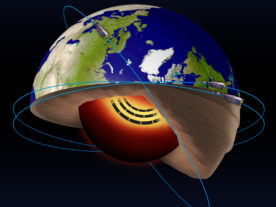
Radioactive Material Found in Fracking Waste; Searching Space for H20
Radioactive Isotopes Found in Fracking Waste US oil and natural gas production, has been boosted in recent years by a drilling process known as hydraulic fracturing, commonly called “fracking.” But this practice has also been criticized for its possible impact on the environment because of the wastewater this method generates. A new study published in […]
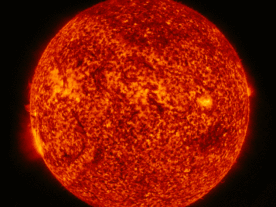
October 2016 Science Images

Pluto Flyby Data Feed Complete; Nearby Exoplanet May Have Oceans
New Horizon’s Sends Final Data of Pluto Flyby The final bits of data gathered by NASA’s New Horizons spacecraft during its July 2015 flyby of Pluto were received this week by its mission operations center at Johns Hopkins Applied Physics Laboratory in Laurel, Maryland. More than 50 gigabytes of observational data was stored on the […]
September 2016 Science Images
August 2016 Science Images

Oxygen on Exoplanet; Smaller Universe; Intergalactic Tan
Nearby Exoplanet’s Atmosphere May Contain Oxygen In November 2015, scientists discovered a Venus-like planet that’s only 39 light years away, called Gliese 1132b. The planet is thought to have an atmosphere, despite having a blistering temperature of more than 230° degrees Celsius, since it orbits its red dwarf star from a distance of only 2.25 […]
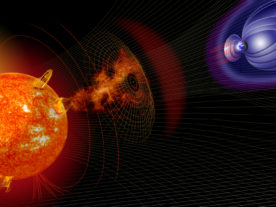
The Day Geoscience Saved the World From Possible Armageddon
In the late 1960s, U.S. military action that would likely have led to nuclear Armageddon was averted, thanks to wary officers who looked for explanations other than Soviet aggression when warning systems suggested otherwise. A new study by three retired U.S. Air Force officers and researchers at the University of Colorado, Boulder, details the events […]
Our Expanding Universe; LISA Pathfinder is a Success; Drugs in Waterways
How Fast is the Universe Expanding? The universe is a big place. And it’s getting even bigger, and at a faster rate than scientists had predicted. That’s according to a new study at Johns Hopkins University, led by Professor Adam Reiss. The study is based on an analysis of data gathered by the Hubble Space […]
